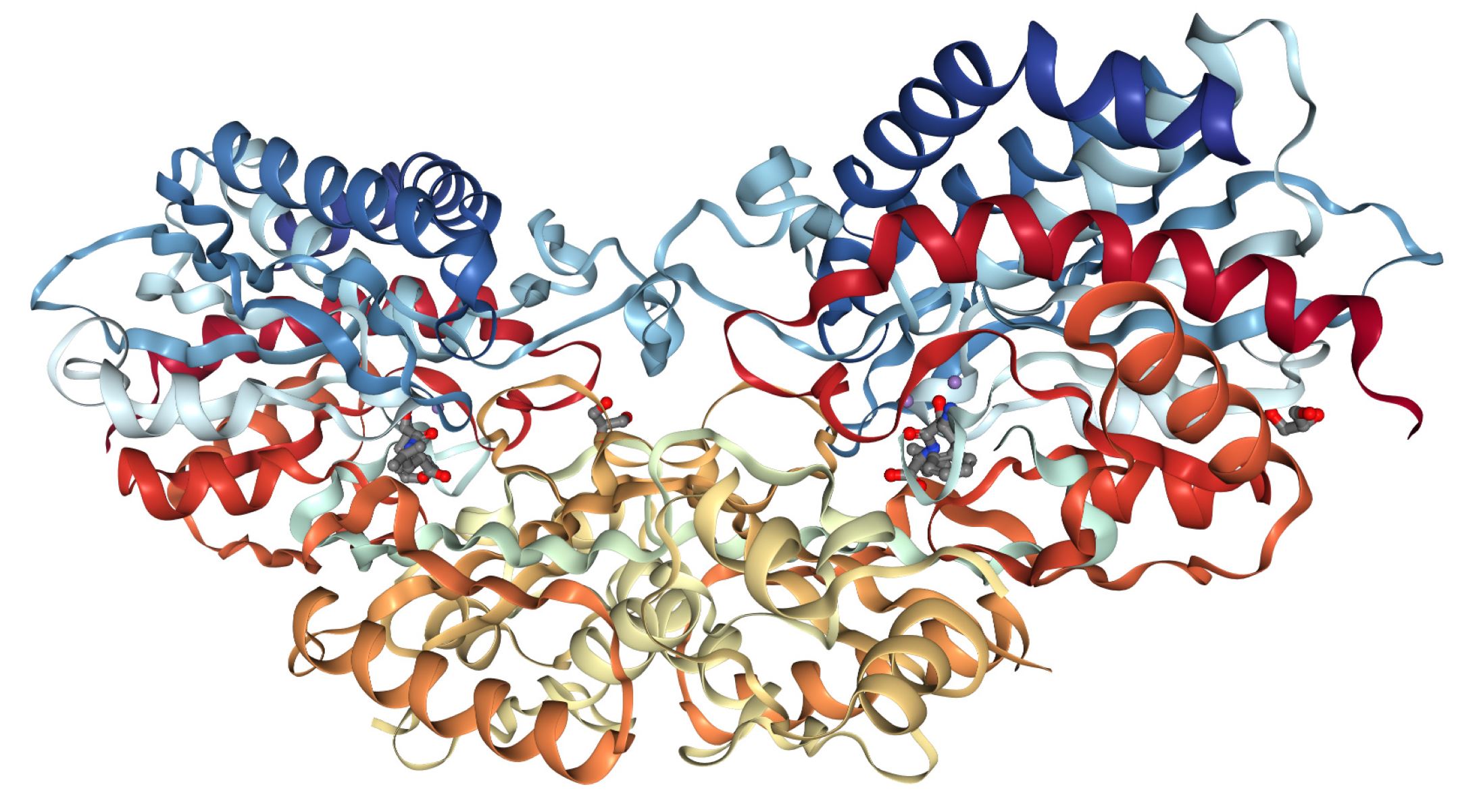
Carnosinase deficiency is a rare genetic disorder that affects the body's ability to break down carnosine, a dipeptide made of beta-alanine and histidine. This condition stems from mutations in the CNDP1 gene, leading to a lack of the enzyme carnosinase. Symptoms can vary but often include developmental delays, intellectual disability, seizures, and progressive mental decline. Elevated carnosine levels in the blood (carnosinemia) and urine (carnosinuria) are key indicators. Inherited in an autosomal recessive manner, both parents must carry the defective gene for a child to be affected. Understanding this disorder is crucial for managing its symptoms and improving quality of life.
Key Takeaways:
- Carnosinase deficiency is a rare genetic disorder impacting the body's ability to break down carnosine, leading to various symptoms and complications, especially affecting the central nervous system.
- Understanding carnosinase deficiency's impact on kidneys, diet, and age-related cognitive decline can help manage the condition better and potentially lead to new therapeutic options.
What is Carnosinase Deficiency?
Carnosinase deficiency is a rare genetic disorder that affects the body's ability to break down carnosine, a dipeptide made of beta-alanine and histidine. This condition can lead to various symptoms and complications, especially impacting the central nervous system.
-
Definition and Genetics: Carnosinase deficiency is caused by mutations in the CNDP1 gene. This gene encodes the enzyme carnosinase, which is responsible for breaking down carnosine into its amino acid components.
-
Symptoms: Symptoms can vary widely but often include developmental delays, intellectual disability, seizures, and progressive mental deficiency. Other symptoms may include spastic paraplegia, neurosensory hearing loss, and retinitis pigmentosa.
Understanding Carnosinemia and Carnosinuria
Carnosinemia and carnosinuria are key indicators of carnosinase deficiency. These conditions highlight the body's inability to efficiently break down carnosine.
-
Carnosinemia and Carnosinuria: Carnosinemia refers to elevated levels of carnosine in the blood, while carnosinuria refers to the presence of carnosine in the urine. Both conditions are indicative of carnosinase deficiency.
-
Family Studies: Case studies show that carnosinase deficiency can be inherited in an autosomal recessive manner. This means an individual must inherit two defective copies of the CNDP1 gene (one from each parent) to express the condition.
The Role of Carnosinase Enzyme
The carnosinase enzyme plays a crucial role in maintaining normal levels of carnosine in the body. Reduced activity of this enzyme can lead to elevated levels of carnosine, which can be harmful.
-
Enzyme Activity: Reduced activity of the carnosinase enzyme leads to elevated levels of carnosine, which can be toxic to the central nervous system and other tissues.
-
Central Nervous System Involvement: Carnosinase deficiency has been linked to various neurological disorders, including Parkinson’s disease, multiple sclerosis, and dementia. The enzyme plays a role in the central nervous system, and its deficiency can lead to cognitive decline and neurological symptoms.
The Impact on Kidneys and Diet
Carnosinase deficiency can also have implications for kidney health and dietary choices. Understanding these impacts can help manage the condition better.
-
Kidney Protection: Low levels of carnosinase activity have been associated with kidney protection, particularly in diabetic nephropathy. Reduced carnosinase activity allows for higher levels of peripheral carnosine, which can protect the kidneys from oxidative damage.
-
Dietary Influence: Diet can influence carnosinase activity. A diet high in carnosine can exacerbate the symptoms of carnosinase deficiency, while a diet low in carnosine may help manage the condition.
Serum Carnosinase Levels and Age
Serum carnosinase levels can vary among individuals due to genetic polymorphism, age, gender, diet, and diseases. These factors can modify serum activity levels.
-
Serum Carnosinase Levels: Serum carnosinase levels vary among individuals due to genetic polymorphism. Age, gender, diet, and diseases can also modify serum activity levels.
-
Carnosinase Activity and Age: Carnosinase activity increases with age, but a faster increase in carnosinase activity is associated with cognitive decline. Maintaining optimal carnosinase activity is crucial for preventing age-related cognitive decline.
Research on Carnosinase Inhibitors
Researchers are exploring potential inhibitors of carnosinase to develop therapeutic options for managing carnosinase deficiency.
- Carnosinase Inhibitors: Potential inhibitors of carnosinase, such as carnostatine and bestatin, have been identified. However, these inhibitors are not selective towards serum carnosinase, and further research is needed to develop specific inhibitors for therapeutic use.
Carnosinase in Diabetic Nephropathy
Carnosinase activity has been studied in the context of diabetic nephropathy, revealing interesting findings about its role in kidney health.
-
Carnosinase in Diabetic Nephropathy: Genetic variants associated with low serum carnosinase concentrations are more frequently found in patients with type 2 diabetes without renal function impairment, suggesting a protective effect of lower CN1 concentrations.
-
Hyperglycemia and CN1 Activity: Under hyperglycemic conditions, increased N-glycosylation stimulates the secretion of carnosinase into the blood flow and increases its activity. This upregulation of CN1 activity can exacerbate oxidative stress and contribute to diabetic complications.
Reactive Metabolites and Oxidative Stress
Reactive metabolites and oxidative stress play a significant role in the regulation of carnosinase activity and its impact on health.
-
Reactive Metabolites and CN1 Activity: Reactive metabolites like methylglyoxal and nitric oxide can upregulate CN1 activity through carbonylation and S-nitrosylation. On the other hand, S-cysteinylation inhibits serum CN1, highlighting the complex regulation of carnosinase activity.
-
Carnosinase and Oxidative Stress: Carnosinase degrades dipeptides that scavenge oxidative metabolites, preventing the formation of advanced glycation end-products (AGEs). Elevated CN1 activity can lead to increased oxidative stress, detrimental to both the central nervous system and kidneys.
Carnosinase in Type 1 Diabetes
Carnosinase activity has implications for type 1 diabetes, particularly in relation to renal function and the development of diabetic kidney disease (DKD).
-
Carnosinase in Type 1 Diabetes: Serum CN1 concentrations have been associated with renal function and the development of diabetic kidney disease (DKD). Higher CN1 activity is linked to increased oxidative stress and a higher risk of DKD.
-
Microalbuminuria Prediction: Serum CN1 could predict incident microalbuminuria in type 1 diabetes, making it a novel parameter for identifying patients at risk for DKD. This association highlights the potential role of CN1 in monitoring and managing diabetic complications.
Carnosinase Deficiency in Children
Carnosinase deficiency can manifest in children, leading to various symptoms that require early intervention for effective management.
- Carnosinase Deficiency in Children: Carnosinemia, characterized by elevated carnosine levels in the blood, can manifest in children. Symptoms include developmental delays, seizures, and intellectual disability. The condition is often diagnosed in infancy and requires early intervention to manage symptoms effectively.
Research and Future Directions
Further research is needed to understand the complex interactions between carnosinase activity and various diseases. This research could lead to new therapeutic options for managing carnosinase deficiency.
-
Carnosinase Activity in Tissues: Tissue extracts from individuals with carnosinase deficiency show reduced activity of the enzyme. Starch block electrophoresis has been used to analyze the electrophoretic forms of carnosinase in tissue extracts, revealing abnormalities in enzyme activity.
-
Research and Future Directions: Further research is needed to understand the complex interactions between carnosinase activity and various diseases. The development of selective inhibitors for carnosinase could provide therapeutic options for managing conditions associated with carnosinase deficiency. Additionally, studying the genetic polymorphisms affecting CN1 activity will help in identifying individuals at risk for related disorders.
Understanding Carnosinase Deficiency
Carnosinase deficiency is a rare genetic disorder with significant impacts on the central nervous system and other bodily functions. Caused by mutations in the CNDP1 gene, this condition leads to elevated levels of carnosine in the blood and urine, resulting in symptoms like developmental delays, seizures, and intellectual disability. The enzyme carnosinase plays a crucial role in breaking down carnosine, and its deficiency can lead to various complications, including neurological disorders and kidney issues.
Interestingly, lower carnosinase activity might protect the kidneys, especially in diabetic nephropathy. Diet and genetic factors influence carnosinase activity, and ongoing research aims to develop selective inhibitors for therapeutic use. Understanding the complex interactions between carnosinase activity and various diseases is essential for developing effective treatments. Early diagnosis and intervention can help manage symptoms and improve the quality of life for those affected by this condition.
Frequently Asked Questions
Was this page helpful?
Our commitment to delivering trustworthy and engaging content is at the heart of what we do. Each fact on our site is contributed by real users like you, bringing a wealth of diverse insights and information. To ensure the highest standards of accuracy and reliability, our dedicated editors meticulously review each submission. This process guarantees that the facts we share are not only fascinating but also credible. Trust in our commitment to quality and authenticity as you explore and learn with us.


